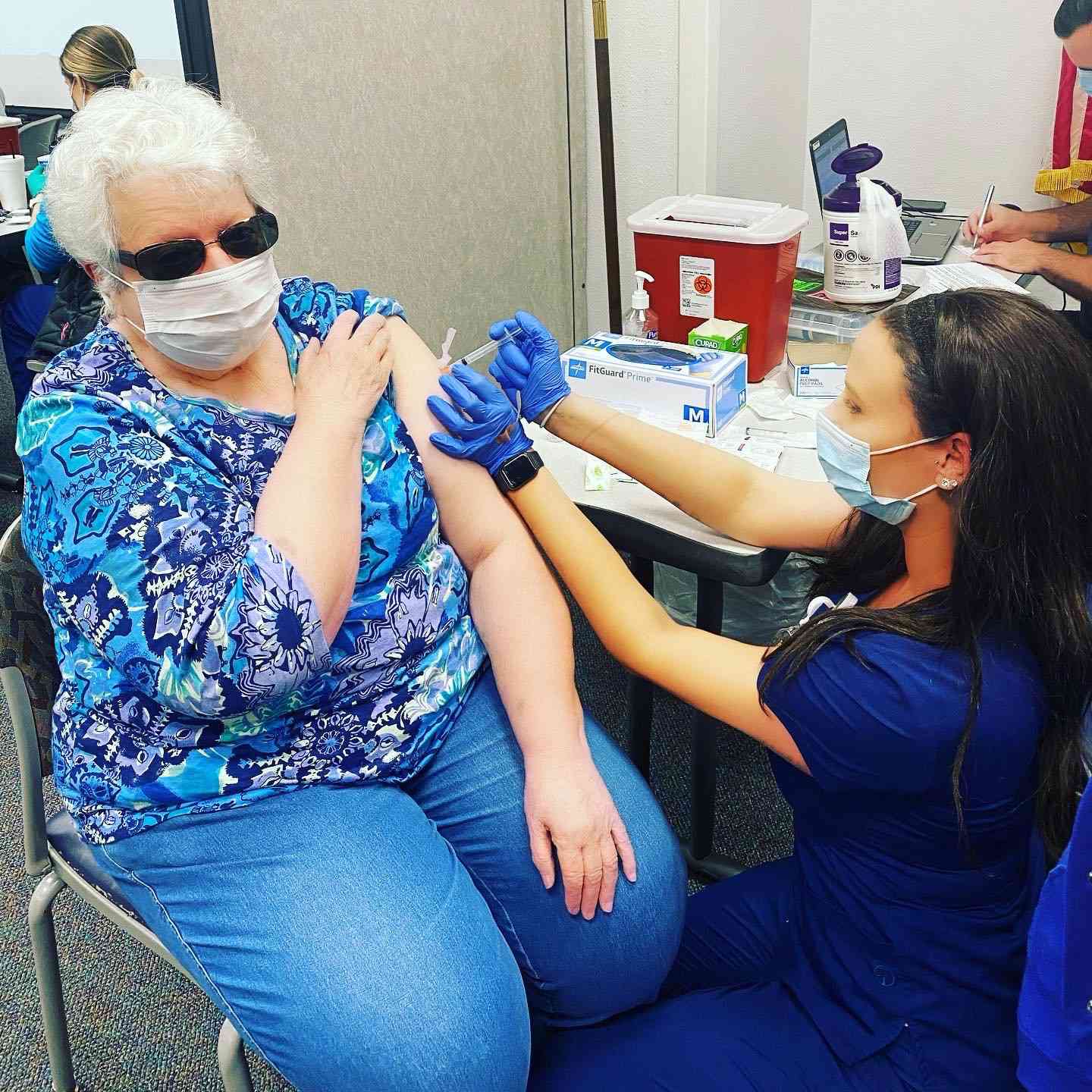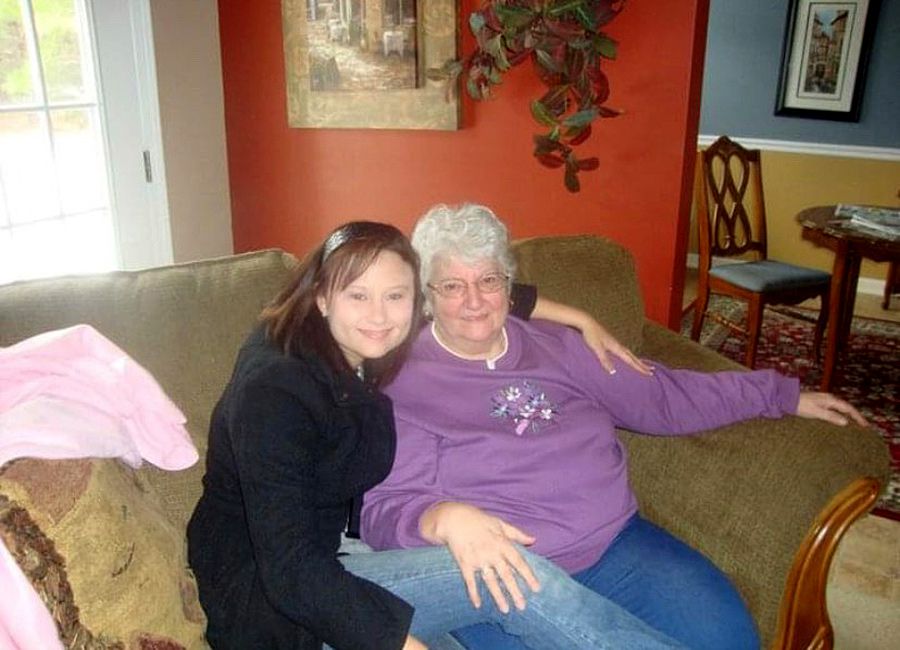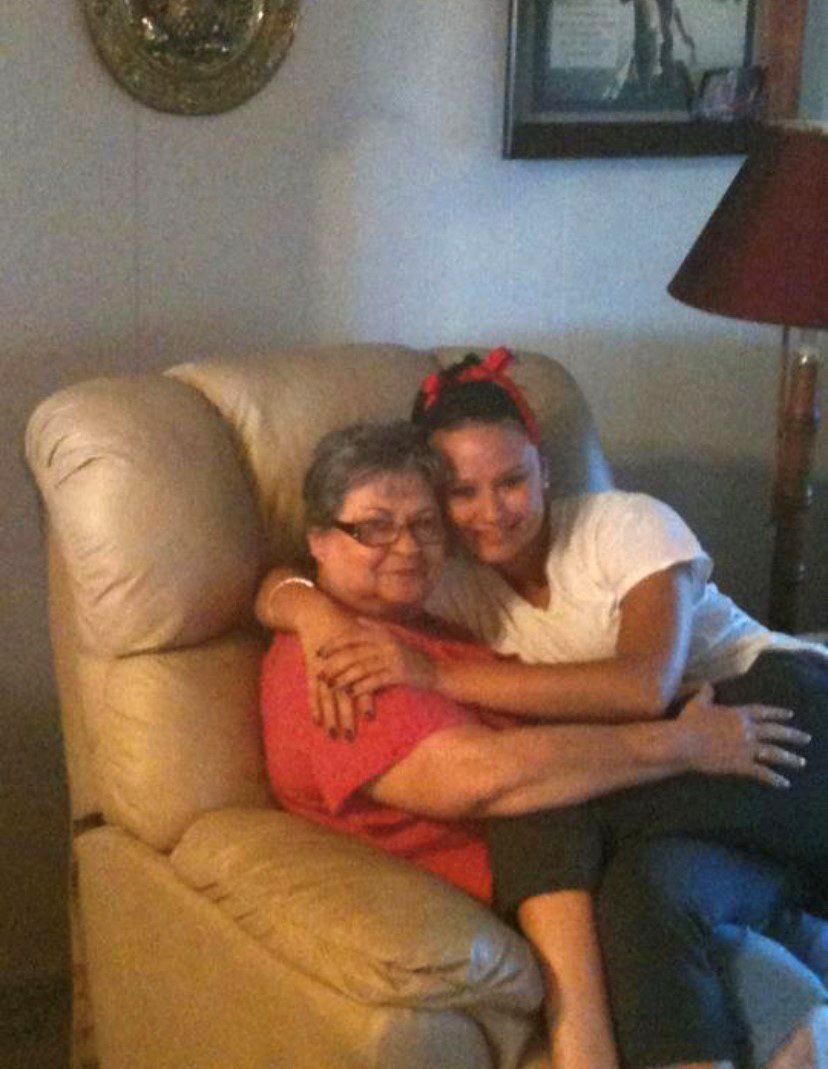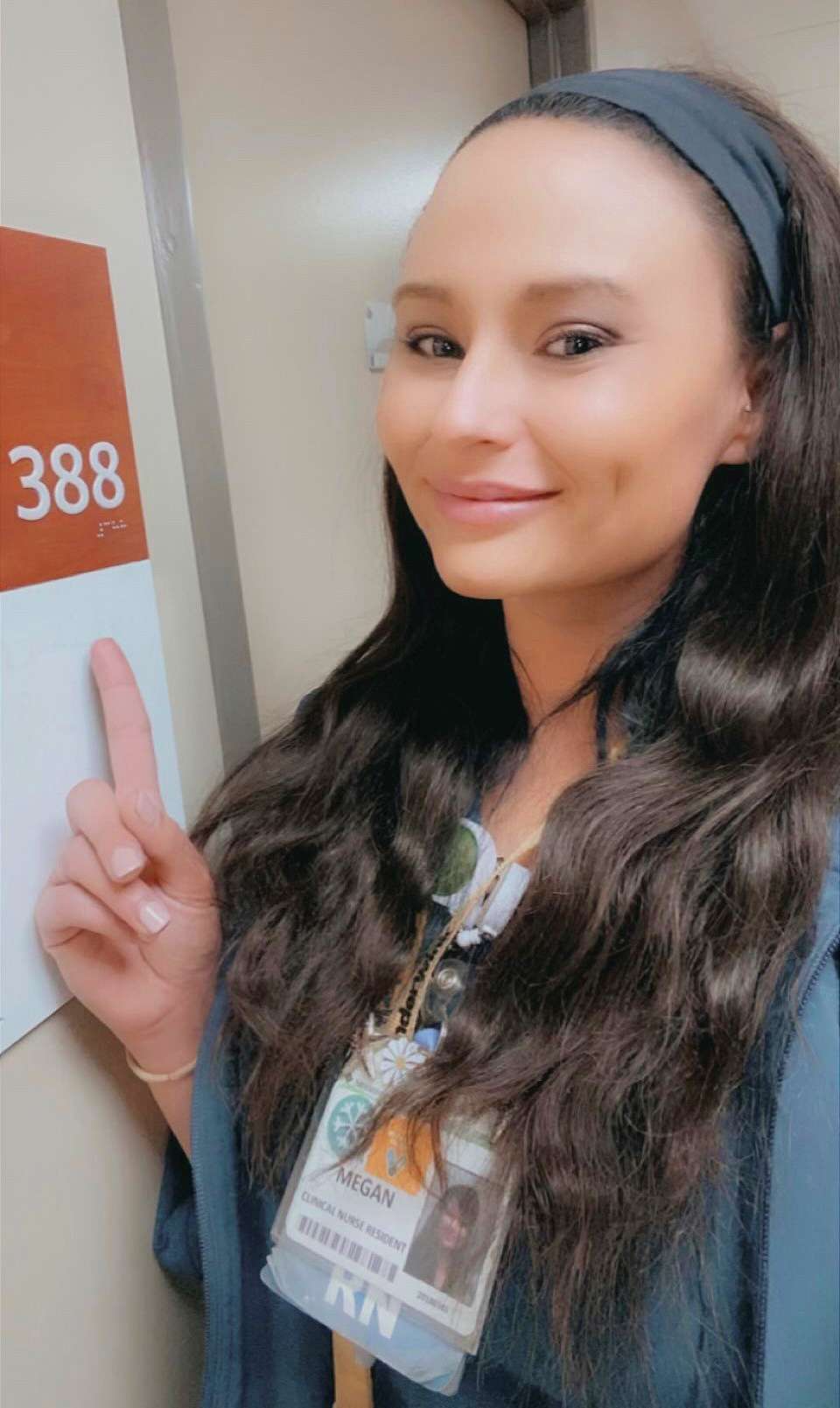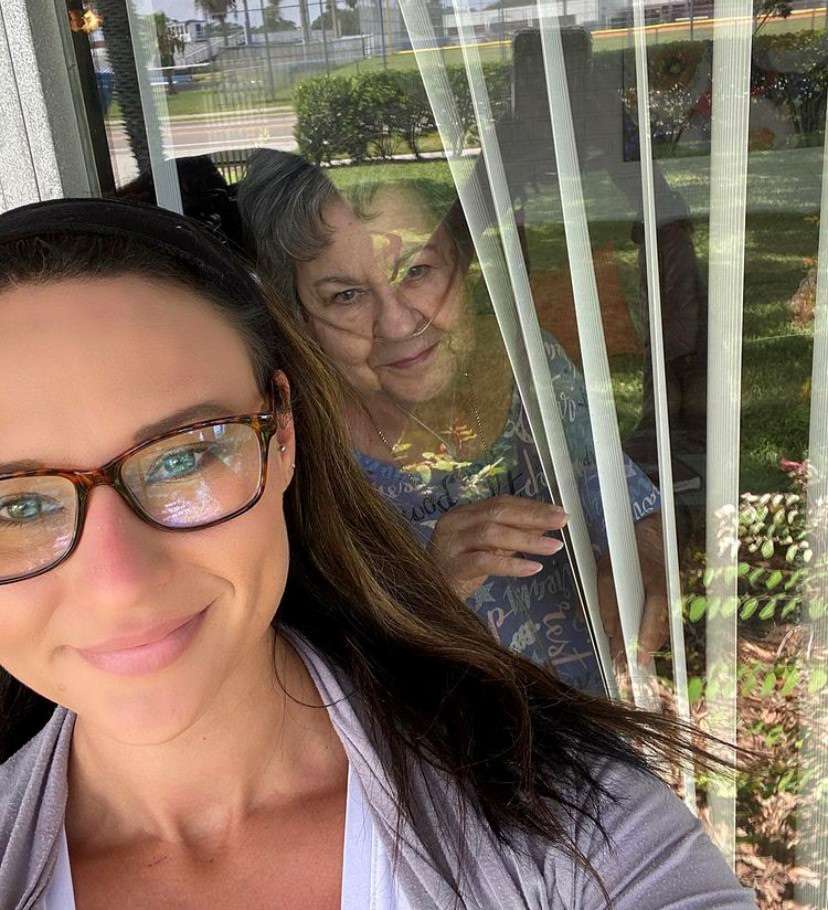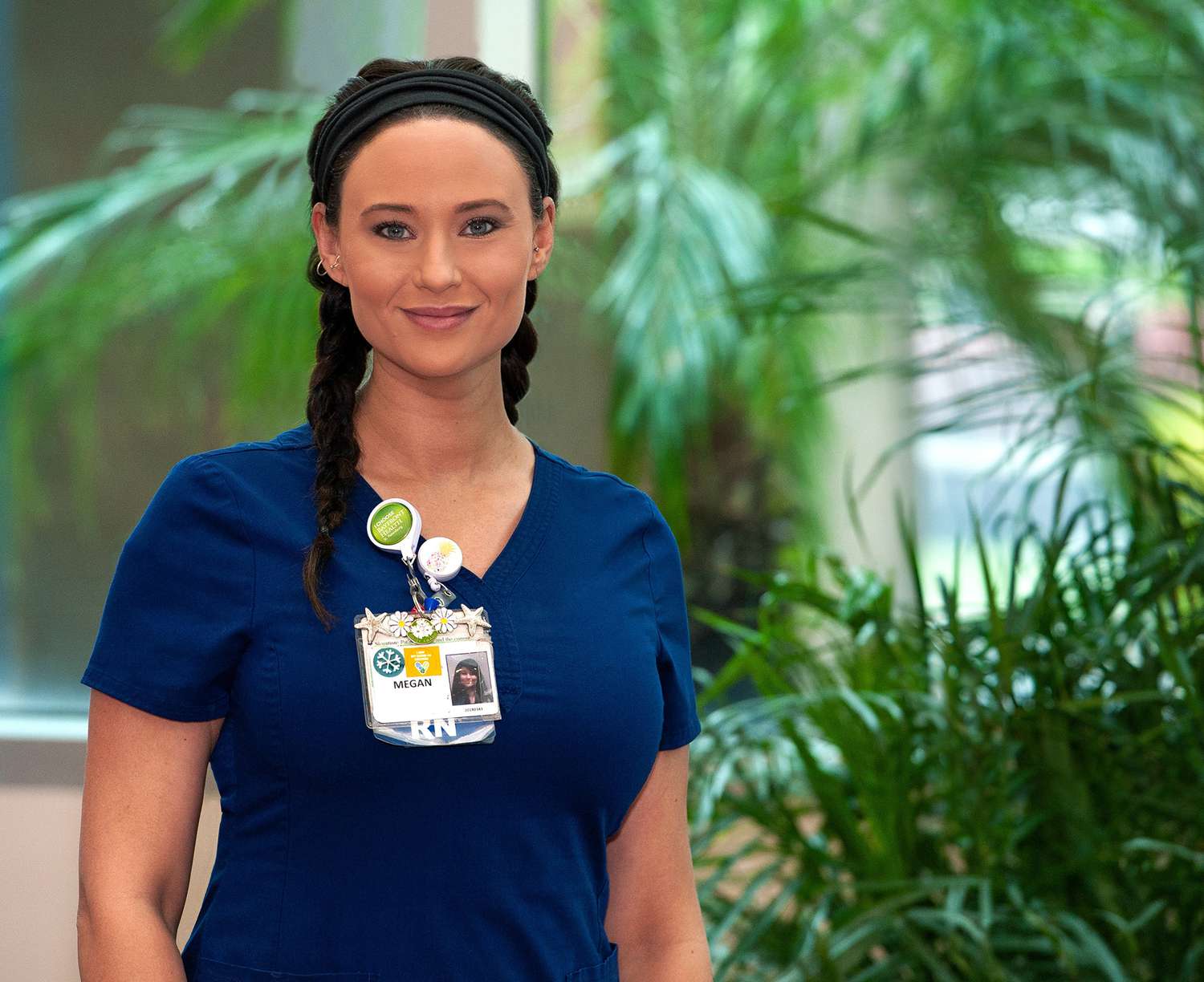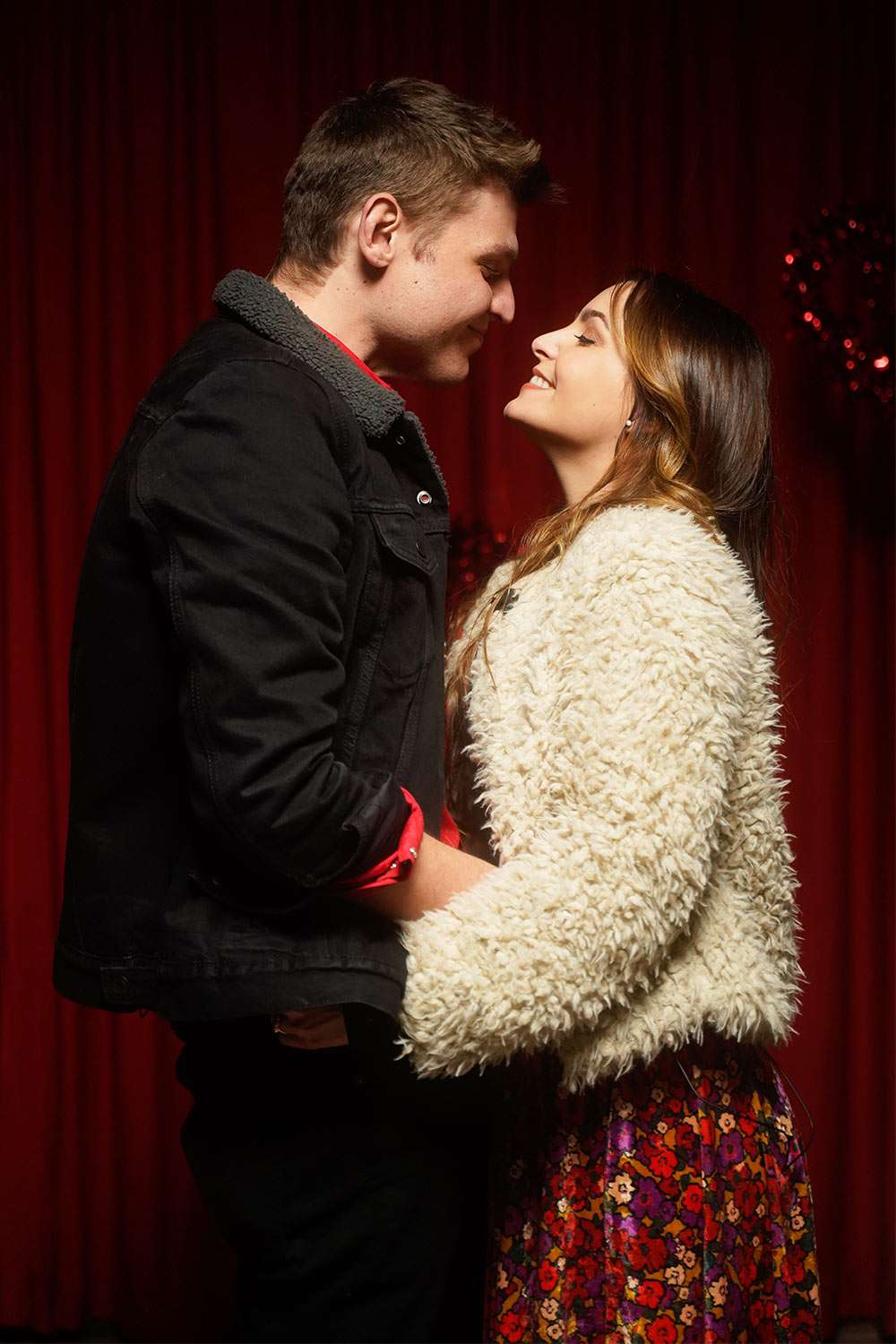Fla. Nurse Gets to Vaccinate Both of Her Grandmas After Months Apart Due to COVID: 'Meant to Be'
A Florida nurse recently got the once-in-a-lifetime opportunity to vaccinate both her grandmothers after spending months apart due to COVID-19.
Megan Patterson tells PEOPLE she's been working as a nurse in the COVID unit at Bayfront Health St. Petersburg ever since the pandemic first hit the United States last March.
Because of her frequent exposure to the virus, Patterson, 32, chose to limit her contact with others — including her beloved grandmothers, Susan Patterson. a.k.a. "Gramma," and Connie Dunaway, a.k.a. "Nana."
"It was so hard," Patterson recalls. "They both have COPD [chronic obstructive pulmonary disease], so their lungs aren't in the best of shape."
"My Nana, I would do her grocery shopping and see her once a week to do lunch so that was a really big adjustment not being able to do that," she adds. "And with Gramma, I would do window visits… and that was almost even more emotional than not seeing her at all because you're so close."
But their circumstances changed recently when Patterson got a chance to vaccinate both of her grandmothers at the same hospital where she works.
"It feels as though it was meant to be," Patterson says. "I would go through COVID all again if I knew this was gonna be the end result each time."
Growing up, Patterson was very close with both grandmothers, despite Nana living two hours north of her.
"With Nana, I would see go see her twice a month," she explains. "We did a lot of cool stuff together, and she always had snacks for me, or had yard sales."
"Gramma was the one who taught me how to bake a pie from scratch and she gave me a lot of life lessons," she explains. "I lived with her. She was my main mother figure. My mom was around but she was pretty young."
Adds Patterson: "They're huge aspects of my upbringing and the reason why I am the way I am."
As she got older, Patterson planned to pursue a career as a lawyer — but her perspective changed after her brother was shot by a sniper in Iraq in 2006.
"It was the doctors who were telling us, 'You need to spend as much time with him as possible, he's not gonna make it,'" she recalls. "But it was the nurses who said, 'Don't give up on him, he hasn't given up yet, we're gonna fight to keep him alive.'"
"For them to come in and say, 'There's hope' … it was the light that we needed to keep holding on," she continues. "So when he got better, I decided I want to be that fighter for someone."
Patterson ultimately went to nursing school before landing a neurology nursing gig at Bayfront Health St. Petersburg — coincidentally on the same floor where she born in 1988.
As the number of COVID-19 cases rose in Florida, Patterson says the hospital's unit managers started asking nurses to volunteer to work in the new COVID unit.
"I said, 'I'll go.' Weirdly, I felt most safe when I was at work than I did not being at work," she explains. "But it was testing. It was hard having patients use my cell phone to FaceTime their family members that way they could see them and say hi, or in some cases, say goodbye."
Over the next several months, Patterson tended to COVID patients while she and her grandmothers struggled to stay away from each other.
"The worst part was not being able to be around the family… it got lonely," she says. "They checked on me more than I reached out to them, but I didn't release to them. I knew they were already worried about me so I didn't want to bring them down."
Eventually, the approved vaccines started to roll out — a moment that had Patterson feeling "excited" because she felt it was the country's "ticket to normalcy."
When the time finally came, Patterson got her vaccine at the hospital and then registered both of her grandmothers to do the same.
Gramma was the first to get her Moderna dose in early January. On that day, Patterson met her at the hospital's vaccine clinic and joined her in line.
"I walked her to the table when it was her turn, and the guy who was vaccinating said, 'Why don't you give it to her?'" Patterson recalls. "There was no expectation of me administering it. It was completely spur of the moment, where the opportunity just happened to be offered."
"It was something I believe so strongly in and I'm so passionate about it, and one of my favorite humans on the entire planet, I get to give her this vaccine," she continues. "I felt like this is our moment."
A few weeks later, it was Nana's turn — and conveniently, Patterson happened to be working the COVID clinic.
"Nothing was staged or planned. I was just the person who had an opening and she was next in line," she explains. "It was exciting… and it feels as though it was meant to be."
Patterson says both Nana and Gramma have since received their second doses of the Moderna vaccine.
"Both felt really good, so I'm taking full responsibility for giving a good shot," she jokes, adding that Gramma looks forward to seeing her family again, and Nana can't wait to eventually get back into casinos.
As she reflects on the special moment with her grandmothers, Patterson hopes her story will serve as encouragement for others thinking about the vaccine.
"For me to actually be able to administer the vaccine to them — these two women I'd do anything for — that speaks volumes," she says. "I feel so confident in this vaccine and I hope people on the fence take that into consideration because I would never give anything that would cause harm to people I care so much about."
"COVID [has been] such a dark time," says Patterson, "and this story, I hope, brings some light to the COVID world."
As information about the coronavirus pandemic rapidly changes, PEOPLE is committed to providing the most recent data in our coverage. Some of the information in this story may have changed after publication. For the latest on COVID-19, readers are encouraged to use online resources from CDC, WHO, and local public health departments. PEOPLE has partnered with GoFundMe to raise money for the COVID-19 Relief Fund, a GoFundMe.org fundraiser to support everything from frontline responders to families in need, as well as organizations helping communities. For more information or to donate, click here.
Source: Read Full Article

